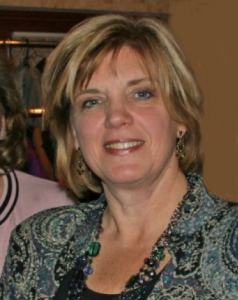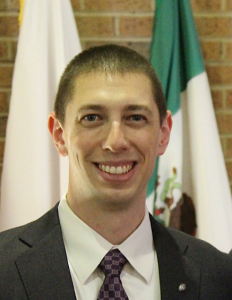Career Opportunities in Science Publishing (Part I) Last February 17, iJOBS hosted another very informative career panel series, this time focusing on job opportunities in science publishing. As a career that I was seriously considering after grad school, I was personally excited about this particular iJOBS event. The panelists were Ph.D. level editors and publishers from different publishing companies, namely, Elsevier, Nature Publishing Group, and Wiley. They shared their individual journeys, talked about their job responsibilities, and gave some very helpful advice for PhDs who wanted to pursue a career in science publishing. Two of the panelists were from Wiley: Virginia Benson Chanda, Ph.D. and Eric Prager, Ph.D. For the first part of this blog series, I’m going to focus on their career stories, job responsibilities, and their career advice.  Dr. Chanda did a postdoc and then moved to a senior scientist position at Schering Plough Corporation (now Merck); afterwards, she held a teaching position at Drew and Farleigh Dickinson Universities (she can be a panelist for several career paths!). Her first editing experience was with Current Protocols lab manuals while she was still at Schering Plough. What excited her about this experience was the realization of how much her benchwork background helped with the editing of Current Protocols. It takes someone who has firsthand knowledge of conducting the experiments, who has gone through the protocol a million times, to fine tune these manuals to the point that a fresh graduate student can use them as a guide in performing experiments for the first time. (I can attest to how useful and effective I found Current Protocols during my whole grad school stay, both when I was doing my MS and now in Ph.D.). She shared that now Wiley employs only Ph.D. level scientists as editors for their wide range of Current Protocols manuals; this ensures the high quality and usefulness of these manuals to researchers. Dr. Chanda’s current position at Wiley is Publisher for Internal Editorial Offices, where she supervises an in-house editorial staff of Ph.D. level scientists who perform peer review and content development for Current Protocols and over 20 other life and physical science journals.
Dr. Chanda did a postdoc and then moved to a senior scientist position at Schering Plough Corporation (now Merck); afterwards, she held a teaching position at Drew and Farleigh Dickinson Universities (she can be a panelist for several career paths!). Her first editing experience was with Current Protocols lab manuals while she was still at Schering Plough. What excited her about this experience was the realization of how much her benchwork background helped with the editing of Current Protocols. It takes someone who has firsthand knowledge of conducting the experiments, who has gone through the protocol a million times, to fine tune these manuals to the point that a fresh graduate student can use them as a guide in performing experiments for the first time. (I can attest to how useful and effective I found Current Protocols during my whole grad school stay, both when I was doing my MS and now in Ph.D.). She shared that now Wiley employs only Ph.D. level scientists as editors for their wide range of Current Protocols manuals; this ensures the high quality and usefulness of these manuals to researchers. Dr. Chanda’s current position at Wiley is Publisher for Internal Editorial Offices, where she supervises an in-house editorial staff of Ph.D. level scientists who perform peer review and content development for Current Protocols and over 20 other life and physical science journals.  Dr. Eric Prager is currently editor-in-chief (EIC) of the Journal of Neuroscience Research. In addition to this, he is also development editor for Current Protocols in Neuroscience and publishing manager for Interdisciplinary Reviews Cognitive Science, both of which are commissioned journals. As EIC of Journal of Neuroscience Research, his main goal is to improve the journal’s quality and scope; his job responsibilities involve reading manuscript submissions to decide whether they go on to the first round of editing or are rejected, work with associate editors and an editorial board during the review process, and select peer reviewers. He is also in charge of commissioning review articles for special issues of the journal. He was halfway through a postdoc when he decided to apply for an editorial position at Wiley. His application process included a writing sample test in addition to an interview. Both of them offered great advice for graduate students and postdocs interested in a career in science publishing:
Dr. Eric Prager is currently editor-in-chief (EIC) of the Journal of Neuroscience Research. In addition to this, he is also development editor for Current Protocols in Neuroscience and publishing manager for Interdisciplinary Reviews Cognitive Science, both of which are commissioned journals. As EIC of Journal of Neuroscience Research, his main goal is to improve the journal’s quality and scope; his job responsibilities involve reading manuscript submissions to decide whether they go on to the first round of editing or are rejected, work with associate editors and an editorial board during the review process, and select peer reviewers. He is also in charge of commissioning review articles for special issues of the journal. He was halfway through a postdoc when he decided to apply for an editorial position at Wiley. His application process included a writing sample test in addition to an interview. Both of them offered great advice for graduate students and postdocs interested in a career in science publishing:
- Have a good publication record; it shows that you have the necessary writing skills as well as experience in the publication process.
- Read job postings and start applying.
- Write a compelling cover letter (WITH NO TYPOS!)
- Develop relevant skills such as writing, reviewing journal articles, and mentoring; if possible, participate in your lab’s manuscript review process
- NETWORK! This includes having a stellar LinkedIn profile (they shared that they have recruited people through LinkedIn)
- (optional and expensive) Publishing Certification Workshops. These are not necessary but sometimes HR in some companies may use this to filter applications.
Lastly, Dr. Chanda mentioned other career opportunities at Wiley for Ph.D. level scientists, including:
- Acquisitions editors
- Marketing – provide an insight into the needs of the scientific community
- Author services – a resource Wiley offers to assist authors through the publication process
- Language editors
- Copyeditors (e.g. for Current Protocols)
- Wiley Advisors - another great way for graduate students and early career researchers to get involved in the devleopment of new ideas and services that Wiley could provide that would better serve the scientific community
As a parting note, the main impression I took away from the career panel was that science publishing would be a good match for people who are interested in a broader view of scientific research. Stay tuned for Part II of this series, next time taking a look at publishing careers in Elsevier and Nature.